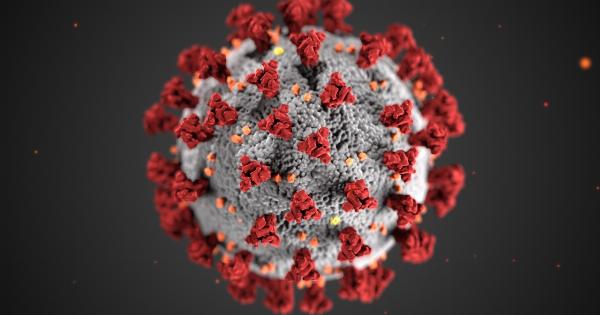Asthma is a chronic respiratory disease that affects millions of people around the world. It is caused by inflammation and narrowing of the airways that lead to the lungs, which makes it difficult to breathe.
Asthma symptoms can range from mild to severe and can vary from person to person.
Causes of Asthma
Asthma is caused by a combination of genetic and environmental factors. Some people are born with a genetic predisposition to asthma, while others develop the condition later in life.
Environmental factors such as pollution, allergens, and respiratory infections can also trigger asthma symptoms in people who are predisposed to the condition.
Symptoms of Asthma
The most common symptoms of asthma include:.
- Shortness of breath
- Chest tightness
- Coughing
- Wheezing
These symptoms can vary in severity and may be intermittent or persistent.
Diagnosing Asthma
Asthma is typically diagnosed through a combination of medical history, physical exam, and pulmonary function tests. Medical history and physical exam can identify the presence of asthma symptoms.
Pulmonary function tests measure lung function and can help diagnose the severity of asthma.
Treatment Options for Asthma
There are several treatment options available for managing asthma symptoms. These include:.
- Inhalers: Inhalers contain medication that is inhaled directly into the lungs. They can help relieve symptoms and prevent asthma attacks.
- Steroids: Steroids are used to reduce inflammation in the airways, which can help prevent symptoms and asthma attacks.
- Allergy medication: Allergy medication can help prevent allergic reactions, which can trigger asthma symptoms.
- Lifestyle changes: Making lifestyle changes such as avoiding triggers, quitting smoking, and staying physically active can help manage asthma symptoms.
Preventing Asthma
While asthma cannot be prevented, there are several steps that can be taken to reduce the risk of developing asthma. These include:.
- Avoiding triggers: Identifying and avoiding triggers that can cause asthma symptoms, such as allergens and pollutants.
- Staying physically active: Regular exercise can help keep the lungs healthy and reduce the risk of developing asthma.
- Quitting smoking: Smoking is a major risk factor for asthma. Quitting smoking can reduce the risk of developing asthma and can also improve symptoms in people who already have asthma.
- Reducing stress: Stress can trigger asthma symptoms in some people. Learning stress-reduction techniques such as meditation and deep breathing can help manage asthma symptoms.
Conclusion
Asthma is a chronic respiratory disease that can affect people of all ages. It is caused by inflammation and narrowing of the airways that lead to the lungs, which makes it difficult to breathe.
There are several treatment options available for managing asthma symptoms, including inhalers, steroids, and allergy medication. While asthma cannot be prevented, steps can be taken to reduce the risk of developing asthma and to manage symptoms.






























